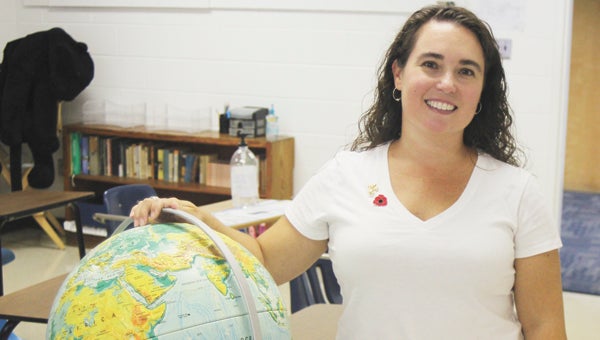Teacher focuses on World War I
Published 10:24 pm Monday, August 19, 2013

Nansemond-Suffolk Academy English teacher Laura Dobrin attended a teaching fellowship program on World War I, an event in history she said doesn’t receive the attention it deserves.
World War I profoundly impacted modern history, laying the groundwork for the Second World War with the Treaty of Versailles.
But it doesn’t receive the attention it deserves in American classrooms, a Suffolk educator says.
Laura Dobrin, an English teacher at Nansemond-Suffolk Academy, said the lack of focus on the Great War was a popular point of discussion at an exclusive fellowship program she attended over summer.
The National World War I Museum’s 2013 Teacher Fellowship took place at the institution in Kansas City, Mo., June 25-28.
“There were teachers from 14 different states, and it was a consensus,” Dobrin said.
Not only is World War I not taught in classrooms nearly as much as other wars and historical events, she said, but it’s also overlooked in American society generally.
Dobrin, who attended college in Great Britain for a year, where practically every village has a World War I memorial, said this is probably because of America’s late entry, in April 1917, after a 2-½ year policy of neutrality.
This year, Dobrin will teach grade-12 English as well as Advanced Placement letters and composition.
Though she doesn’t strictly teach the discipline, she said she incorporates a lot of history into her lessons, and is a fellow at the United States Holocaust Memorial Museum in Washington.
She said she decided to apply for the World War I Museum program after hearing about it last year — its inaugural year — but not soon enough to apply then.
The program included lectures, a tour of the permanent exhibition with the senior curator, and time to tour exhibits independently.
“We got to go into the archives,” she said. “We put on white gloves and worked with real artifacts from the war” including maps, posters, art, letters and weapons and shell fragments.
“As an English person, it was exciting to have your hands on all the different items,” she said.
Dobrin said she would develop a lesson on female writers during World War I.
“I want to look at woman writers from both sides of the world,” she said. “Women journalists, political writers and memoirs, as well as poetry and short stories. I’m trying to get a vision of what women’s reaction was to the war.”
August 2014 will mark the 100th anniversary of the start of World War I, and as part of a museum initiative, Dobrin says she will attempt to connect with individuals and groups in the hope of organizing a local commemorative event.
“I’m sure there were soldiers from Suffolk who served,” she said, noting that troops returning from the war walked beneath a victory arch in Newport News, a port of embarkation.






